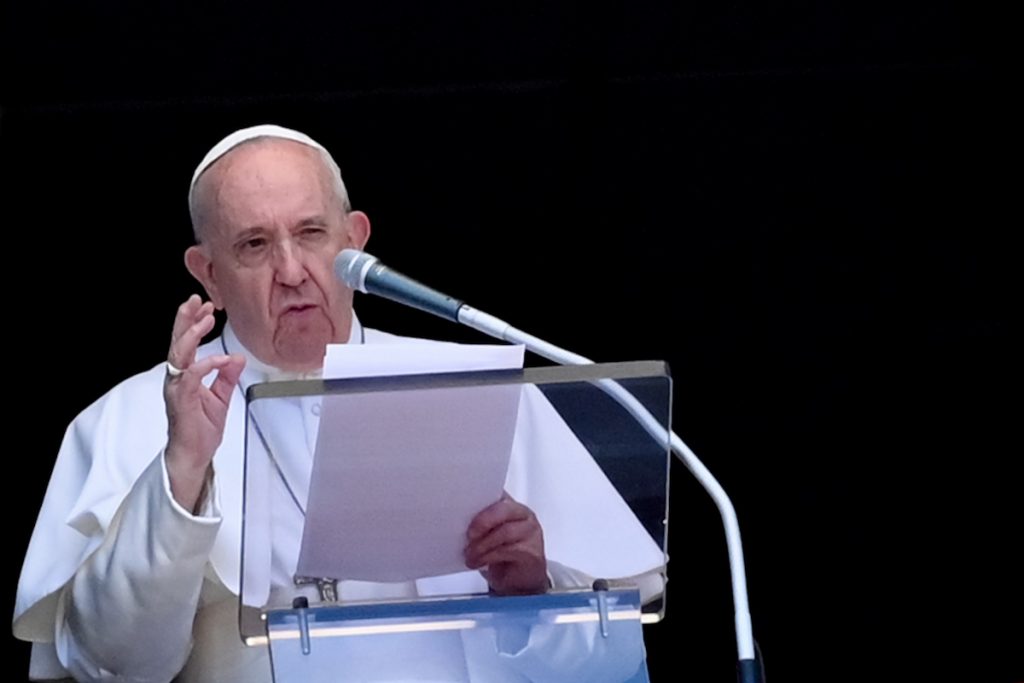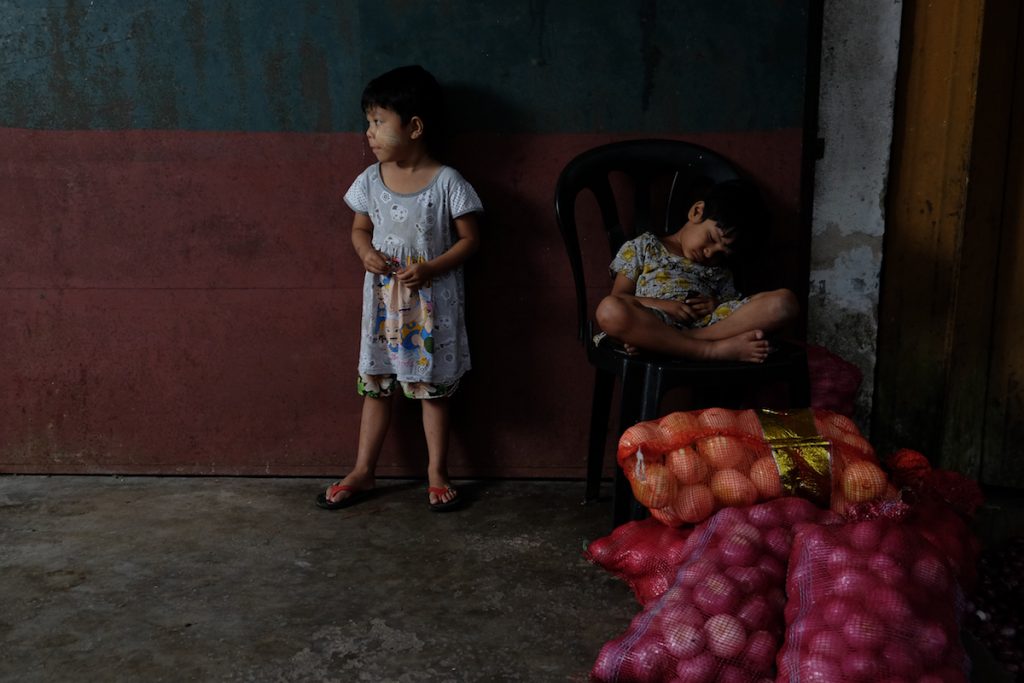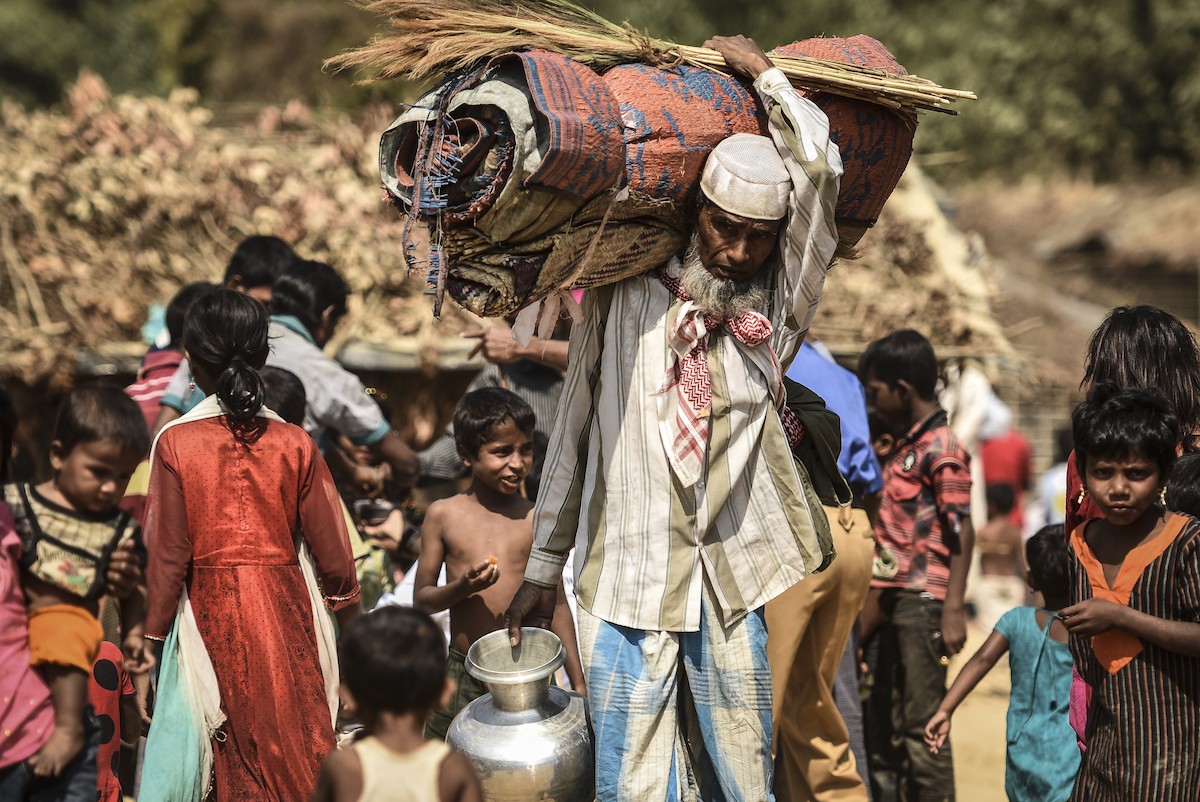Pope Francis has appealed to the faithful to be more aware of the need to protect refugees and migrants as the number of those infected by the coronavirus disease continues to soar.
Addressing pilgrims in the Vatican after the recitation of the Angelus on June 21, the pontiff said the pandemic “has highlighted the need to ensure the necessary protection for refugees.”
He invited the faithful to pray “for a renewed and effective commitment” for the protection of “those who have been forced to flee as a result of situations of grave danger to them or their families.”
On June 20, the United Nations marked World Refugee Day, an international observance aimed at raising awareness of the situation of refugees throughout the world.
During the occasion, Cardinal Charles Maung Bo of Yangon noted that people who are forcibly displaced are especially at risk from the new coronavirus disease.
“They are often on the run, crowded together, and with inadequate health care,” said the president of the Federation of Asian Bishops’ Conferences.
The prelate also noted that “division and conflict remain the main cause of forced migration in the world and in Asia.”
In April this year Cardinal Bo joined calls issued by Pope Francis and the United Nations for a global ceasefire in the face of the unprecedented and growing worldwide threat of the pandemic.
The cardinal said that in Myanmar, which he called as the “world’s fifth major producer of refugees,” a partial ceasefire was declared.
“But the difference between a comprehensive and a partial ceasefire is everything,” he added.
“War is still displacing tens of thousands of people who are now starving in northern Rakhine and southern Chin States,” said the cardinal.
In his call for a global ceasefire, Pope Francis said, “conflicts are not resolved through war and antagonism, and differences must be overcome through dialogue and a constructive search for peace.”

Cardinal Bo in his statement on June 21 warned that “if people continue to be forced from their homes, we will remain a world in crisis.”
He called on leaders across Asia “to address the endemic racism, nativism, and hateful rhetoric present in our societies that particularly affect treatment of undocumented migrants, refugees, and asylum seekers.”
The cardinal noted that in some countries of Asia the pandemic has been used as and excuse for denying assistance to migrant populations.
“This strategy works against the interests and good health of all,” he said.
The number of displaced people around the world reached 79.5 million last year, according to the United Nations’ latest figures.
It is almost double the number of people in crisis registered a decade ago, owing to war, violence, persecution and other emergencies.

The UN’s annual Global Trends report, which came ahead of World Refugee Day last week, shows that 8.7 million people were newly displaced in 2019 alone.
“This almost 80 million figure … is, of course, a reason for great concern,” said UNHCR High Commissioner Filippo Grandi in a statement.
The UNHCR chief noted that although the issue of displacement affects all nations, data showed that poorer countries host 85 percent of those forced from their homes.
Nearly seven out of ten of those who have been displaced are from Syria, Venezuela, Afghanistan, South Sudan, and Myanmar.
“If crises in these countries were solved, 68 percent of global forced displacement would be on its way to being solved,” said Grandi.
The report also noted diminishing prospects for refugees when it comes to hopes for a quick end to their plight. In the 1990s, on average 1.5 million refugees were able to return home each year.
Over the past decade, that number has fallen to about 385,000.
Grandi said the pandemic would “no doubt” push more people into crisis.
Since the global health crisis began, UNHCR has reported an increase in the number of Rohingya people moving from Bangladesh and Myanmar to Malaysia and other countries in southeast Asia.







